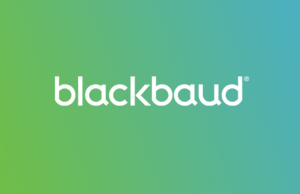Facebook rolled out an experimental giving platform that allows users to donate $25 to any of a dozen charities. The social networking platform might expand the program in 2013.
For many people on Facebook, it might be the first time they’re considering a contribution or have discovered the work of a nonprofit. People might know LIVESTRONG or the American Red Cross, said Sarah Feinberg, Facebook’s director of policy communications and runs the social good programs, but might be less familiar with the likes of Kiva, Girls Inc., or Blue Star Families. Facebook acquired an app gifting platform called Karma in May 2012 that allows users to send a gift, such as flowers or a T-shirt, to a friend. Through that integration, Facebook created what’s now Facebook Gifts, according to Feinberg.
Weeks after the initial test launch, Gifts allowed users to include a charitable contribution to 11 pre-selected nonprofits, including American Red Cross, Livestrong, Boys & Girls Clubs of America, DonorsChoose.org and St. Jude. A 12th charity, The Robin Hood Foundation, was added around the time of the 12.12.12 concert for Sandy relief.
Gifts was rolled out to a smaller number of users that has grown over time. It is now available to all U.S. users, said Feinberg. The charities involved were selected based on their long relationship with Facebook and the ability to move quickly, she said.
Facebook has a tendency to push out quickly to users, see how testing goes, then fix the bugs over time, versus waiting for something to be perfected. “We wanted partners with an ability to move quickly and to serve a diverse number of audiences,” Feinberg said.
“We believe this can have a huge impact eventually, to be a really easy way to give a gift, in honor of someone, and also introduce them to the world of charitable giving,” she said.
There is only one option for the gift amount ($25), Feinberg said because that made the most sense to build the product with the right price point for people on Facebook. There might be more options in the future. Facebook processes the gift but does not yet take an administrative fee. “This is a test and our nonprofit partners have eyes wide open,” said Feinberg.
The most likely plan will be to roll out a second phase, with a new set of partners, or build it to scale to any partner that wants to be involved, according to Feinberg.
Fundraising figures have not been released to this point because Gifts started slowly, with such a small audience, Feinberg said. Facebook will examine the Gifts platform in the coming months and make chances, if necessary, in 2013, she said.
Facebook is constantly testing various aspects of Gifts, including experimenting with where it appears on the dropdown menu, in addition to suggesting charities use certain photos to draw more attention to it, she said.
Facebook also launched an organ donation program last May, allowing users to officially register with their state. Feinberg described the organ crisis as “more of a social crisis than a medical crisis,” as a result of misinformation about organ donation and the failure of people to register as donors.
Short of registration, the Facebook option at least makes people’s wishes clear to family and friends, said Feinberg. “The main people who are comfortable with this are those who know family or friends who need an organ or needed one and passed away,” she said.
The effort aims to “start the conversation,” said Feinberg, which is likely to cut down on misinformation. So far, 425,000 Facebook users have signed up to be organ donors. NPT











